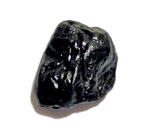High Carbs and Lean Body Mass
Posted by: admin on: February 2, 2012
High Calorie diet irrespective of the protein intake makes up for the fat accumulation and obesity.
Eating too much guarantees that your body will pack on the fat, regardless of how much protein you consume, researchers found.
Patients who ate a low-protein diet gained less weight overall than those who ate a normal- or high-protein diet, but they all experienced a similar increase in fat mass when they overate by about 1,000 calories a day, George Bray, MD, of Pennington Biomedical Research Center in Baton Rouge, La., and colleagues reported
“Fat storage was exactly the same with all three levels of protein,” Bray told. “Protein, on the other hand, had no effect on storage of fat, but it did affect weight gain.”
Some work has suggested that eating a diet high or low in protein could maintain body weight through its potential effects on metabolism; eating too little could spare lean body mass while eating too much could add lean body mass.
So Bray and colleagues assessed 25 patients — 16 males, 9 females — ages 18 to 35 with a body mass index (BMI) between 19 and 30 who lived in-clinic for the duration of the study.
They first had a weight-stabilizing diet, followed by randomization to diets consisting of 5%, 15%, or 25% energy from protein. During this phase, patients overate for eight weeks, increasing their overall energy intake by about 40%, or an additional 954 kcal per day.
Bray and colleagues found that all patients gained weight, but those in the low-protein group gained less than those who ate normal or high levels of protein..
And the overall increase in fat mass was similar between groups, rising about 3.51 kg from baseline, they reported.
They also found that resting and total energy expenditure rose among those who had normal- or high-protein diets, but it didn’t change in the low-protein group.
“Calories count” when it comes to obesity.
“A low-protein diet may mean you weigh less, but might cause higher levels of body fat,” Sandon said. “Those that ate the low-protein diet gained less weight overall, but the weight they gained was mostly body fat. Excess body fat is related to metabolic syndrome and other health issues even if you are of normal or slightly overweight.”
Sandon also noted that the increased gain in muscle mass among those on the normal- and high-protein diets likely accounts for the increase in resting energy expenditure.
“We also know from other research that protein has a higher thermic effect on food,” he said in the email. “Higher protein intake requires more calories to digest, absorb, and metabolize compared to carbohydrate or fat. This may partly explain the increased calorie expenditure in the normal-to-high-protein groups.”
Another study demonstrates “how low-protein foods with hidden sugars or fats may be contributing to the obesity epidemic.”
“When individuals consume excess carbohydrates out of proportion to protein, the body may gain less weight than when protein is consumed in adequate amounts,” they wrote. “Clinicians should consider assessing a patient’s overall fatness rather than simply measuring body weight or body mass index, and concentrate on the potential complications of excess fat accumulation.”
Search
- drchasrani: Difficult to get such a data, authenticated at that. Try Times of India online library
- rakesh pore: hi, where can i get genuine information about "10 most common drugs sold in india?" i want it for a local project
- nilesh dutta: sir, Plz give detail about MBA Sports Management Thanks and Regards


Leave a Reply